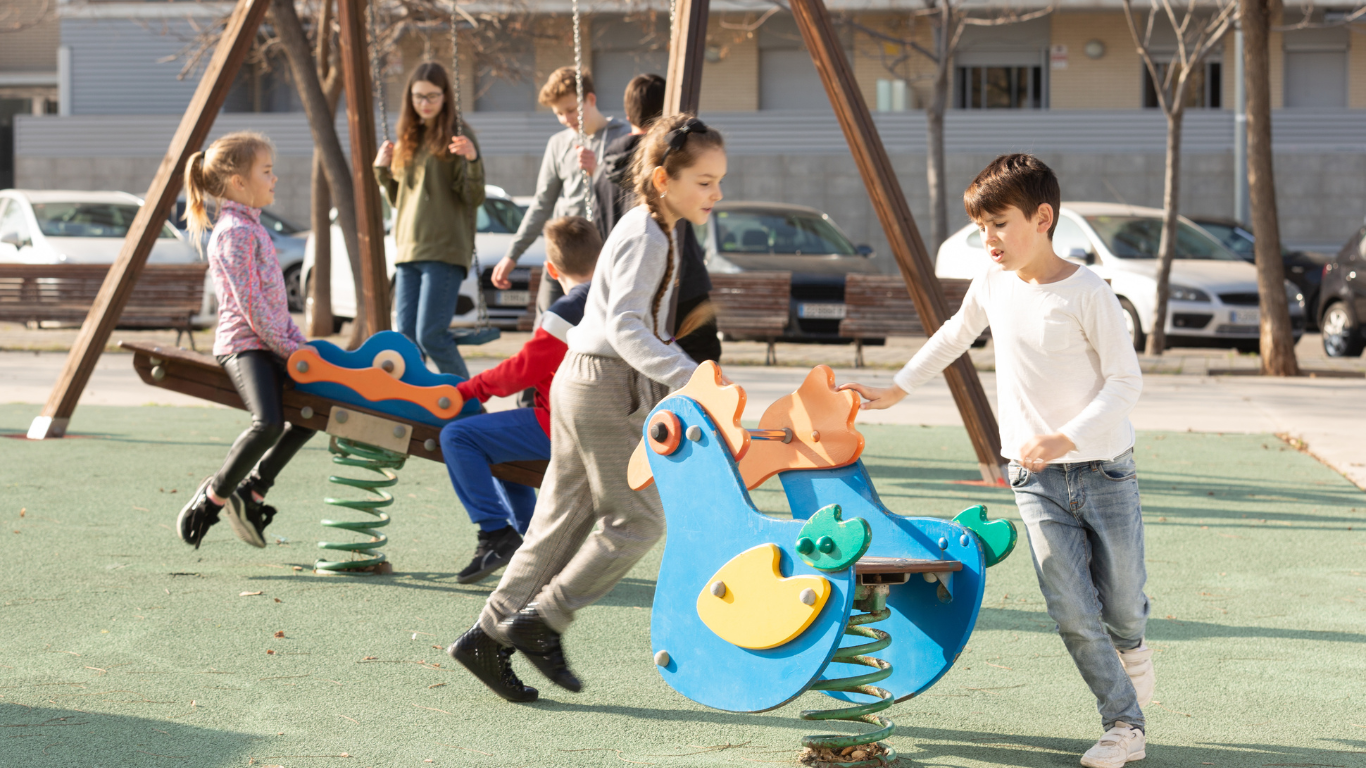Good quality play time is essential for the overall development of children. However, for a child with a learning disability it can lead to sensory overload. According to a recent study on special educational needs in India, with so many children suffering from special educational needs, many schools do not have appropriate outdoor playground equipment to fully support their learning and development.
Also, Are you looking for outdoor gym equipment manufacturers in India?
In this post, we’ll explain why it’s essential to have playground equipment for children with special educational needs in your school or nursery, as well as the many benefits it offers to both your students and your institution. Playground Equipment for Children with Special Educational Needs.
Why Should You Have Playground Equipment For Children With Special Educational Needs
Children with learning difficulties may struggle with socialization, communication, and imagination. This can severely limit their ability to form meaningful relationships, making it difficult for them to play with their peers._
Children with learning difficulties need a safe and supportive environment to play. Access to activities and toys that encourage the application of the most important abilities, such as attention, matching, sorting and recognising different sizes and shapes, is vital! Whatever the challenges these youngsters face, the outcome must be compelling and gratifying to promote successful engagement and achieve the intended learning outcomes.
Having access to a variety of children’s playground equipment can help practice previously taught skills in new and fun ways, and repetition of any play activity should be encouraged. Sensory play is a play style that involves all seven senses: smell, touch, sight, taste, and sound, as well as the two lesser-known senses of vestibular or balance and proprioceptive or the relationship of particular body parts with the rest of the body.
Sensory play promotes investigation and research, which results in more connections and interrelationships being formed between the senses in the brain. Children with special needs require more help to perceive and understand the environment around them, which emphasises the need for sensory play. We have some great articles on what is sensory play and the benefits of playing in water for children which are packed with useful information for you to read.
Benefits Of Sensory Activities For Children With Autism And Other Disabilities
Children with autism and other challenges benefit greatly from sensory play and sensory activities, including:
Social Skills
Research funded by Autism Speaks found that children who engaged in sensory play every day for ten weeks were less likely to need help with social interactions and self-care than children who did not participate. Participating in any kind of sensory play in a pleasant environment stimulates interaction and the formation of new bonds between children.
It also enables children to develop effective problem-solving skills by sharing, investigating and collaborating with their classmates. Play can also help youngsters adapt to new situations and discriminate between them, allowing them to change their behaviour accordingly.
Language Skills
Sensory exercises enable young people to express their feelings and exchange new ideas with their peers. Attempting to express a sensation or event aids the development of a child’s understanding of words and their meaning.
The more children are open, honest and encouraged to express their feelings, the more likely they are to do so in a healthy way. Using prompts and open-ended inquiries about their experiences will encourage this behaviour, helping children to expand and deepen their vocabulary.
Motor Skills And Coordination
It is well known that you can improve a child’s development with sensory playground equipment, as sensory play involves a lot of physical activity, and it is normal for a child with autism to struggle with their movements. This will get worse over time due to a lack of physical activity, and it can be detrimental to the development of their vital motor skills.
Physical play encourages the development of:
- Fine motor abilities are the movements of the wrists, hands, fingers, feet and toes, such as when picking up objects and doing things like writing.
- Running, jumping, sliding, swimming, catching, throwing and kicking all require gross motor abilities, which involve the coordination of the arms, legs and other large body parts.
Problem Solving Skills
Children can develop their decision-making and problem-solving skills during play by experimenting with different objects, finding ways to get around obstacles, and working together with their peers. It can also help them overcome any fears about social interaction, which is one of the most difficult challenges children with disabilities face.
Active Learning
Sensory play often involves using multiple senses at the same time. The more senses a youngster uses during an activity, the more likely he is to remember what happened, thereby developing his cognitive abilities. Certain smells, tastes, sounds, and images can be associated with memory and help with overall knowledge retention.
Introducing children to sensory play at an early age can help form cognitive connections in their brain, promoting the development of emotions and actions such as reasoning and empathy. However, as a teacher, you must be fully aware of your pupils’ limits, as excessive stimulation can result in seizures and fits.
Self-Regulation
Some activities can be therapeutic, especially when playing with children’s outdoor playground equipment, as they serve to reduce feelings of frustration and nervousness that occur when a child feels overwhelmed or busy. Incorporating sensory play activities can help youngsters understand these sensations as well as give them time to refocus and resume. Self-control is also important, as children learn to follow instructions and respect norms and boundaries during sensory play.
